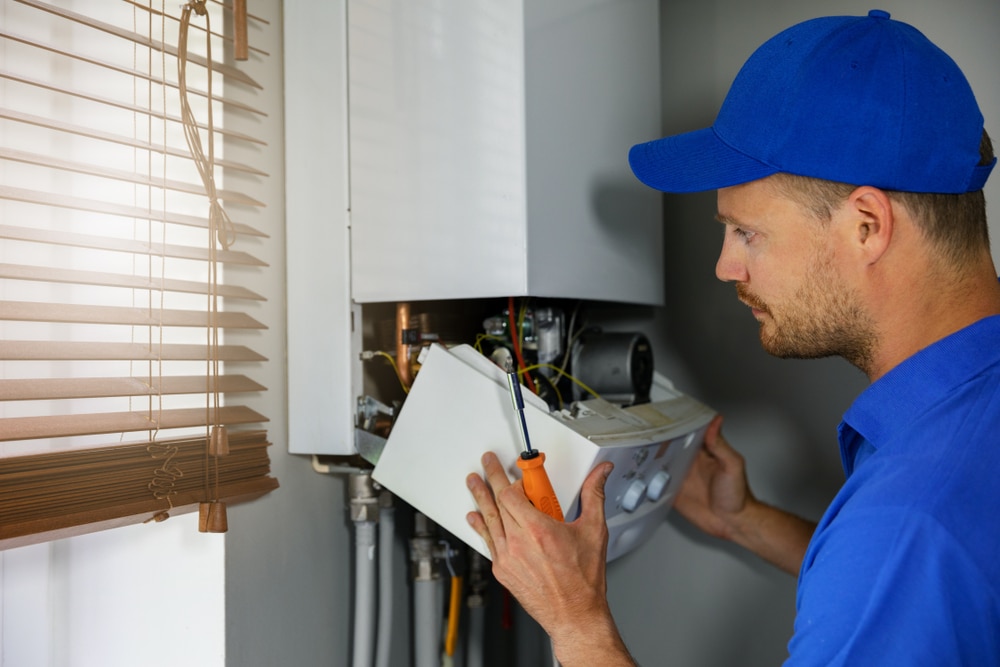A well-functioning water heater is essential for providing your household with a consistent supply of hot water for daily activities like showers, laundry, and dishwashing. However, water heaters, like any other home appliance, can experience occasional issues or declines in performance over time. Knowing the common problems to watch out for and how to address them can be key to ensuring your water heater remains in great condition throughout its lifespan.
In this blog post, we will delve into various water heater issues that homeowners may encounter and explain the appropriate troubleshooting and maintenance procedures to tackle these challenges. With helpful tips and insights from NCS’s professional plumbing team, you can feel more empowered to manage your water heater maintenance, prolong its life, and optimize its performance.
Understanding Common Water Heater Problems
Before diving into troubleshooting and maintenance tips, it is crucial to understand the issues that may plague your water heater. Here are some common problems that homeowners often face:
- Insufficient Hot Water: If your water heater struggles to produce enough hot water, it may be due to an incorrect thermostat setting, a lack of insulation, or a malfunctioning heating element.
- Leaking: Leaks can arise from various sources, such as worn gaskets, damaged drain valves, or a corroded storage tank.
- Unusual Noises: Strange sounds, like popping, cracking, or rumbling noises, can indicate sediment buildup or a malfunctioning heating element.
- Discolored or Foul-Smelling Water: If your hot water appears rusty, discolored, or has an unpleasant odor, the likely culprit is sediment buildup or a corroded anode rod.
Troubleshooting Tips for Common Water Heater Issues
With an understanding of potential water heater problems, you can now explore troubleshooting tips for each issue:
- Adjust the Thermostat: Ensure your thermostat is set to the correct temperature (usually between 120-140°F) for optimal hot water production.
- Inspect the Heating Elements: Check the heating elements for damage or corrosion and replace them if necessary.
- Flush the Tank: Regularly flush your water heater to remove sediment buildup that can impact performance and damage the tank.
- Replace the Anode Rod: If your water heater suffers from discolored or foul-smelling water, inspect the anode rod and replace it if it shows significant deterioration.
Preventative Water Heater Maintenance
The key to prolonging your water heater’s lifespan and ensuring optimal performance is regular preventative maintenance:
- Annual Inspections: Schedule annual inspections with a professional plumber, who can perform a thorough examination and give recommendations for any necessary repairs or maintenance.
- Pressure Relief Valve Testing: Regularly test the pressure relief valve to ensure its proper functioning. Lift the valve’s handle and let it snap back while listening for the sound of water being released through the discharge pipe. If no water flows, the valve may need replacement.
- Drain and Flush the Tank: At least annually, drain and flush your water heater tank to remove any sediment buildup that can hamper efficiency and cause damage.
- Insulate the Tank and Pipes: Ensure your water heater tank and pipes have proper insulation to prevent heat loss and improve energy efficiency.
- Check the Anode Rod: Periodically inspect your water heater’s anode rod for signs of corrosion and replace it every 3-5 years or sooner if required.
When To Call a Professional Plumber
While some water heater issues can be addressed with simple troubleshooting or maintenance, there are times when it’s best to call a professional plumber:
- Persistent Leaks: If you cannot locate the source of a leak or if the leaks persist despite your efforts, it’s time to call a professional to handle the issue.
- Complex Repairs: Some water heater problems, like broken heating elements, require specialized skills and tools to resolve – leaving these tasks for a professional is advised.
- Insufficient Hot Water: If adjusting the thermostat fails to solve your hot water shortages, a professional plumber can assess the situation and recommend a suitable course of action.
- Safety Concerns: Water heaters involve electricity and plumbing, which can pose safety risks if not handled correctly. In such cases, call a professional plumber to ensure safety and a proper resolution.
Conclusion
Proper water heater maintenance and timely troubleshooting can make a significant difference in the appliance’s performance, lifespan, and energy efficiency. Armed with knowledge about common water heater issues and preventative maintenance tips, you can take better control of your home’s hot water supply and avoid costly damages or replacements. However, remember to consult a professional plumber, like the experts at NCS, when unsure or faced with complex issues.
Allow NCS’s experienced plumbing team to be your reliable partner in maintaining your home’s comfort and a consistent supply of hot water. With our comprehensive services, expert support, and dedication to customer satisfaction, you can rest assured that your water heater remains in top condition, serving your family for years to come.
Don’t let water heater troubles disrupt your home comfort. Reach out to our plumbing and heating company today for prompt, reliable, and professional assistance to safeguard your water heater’s performance and longevity.


